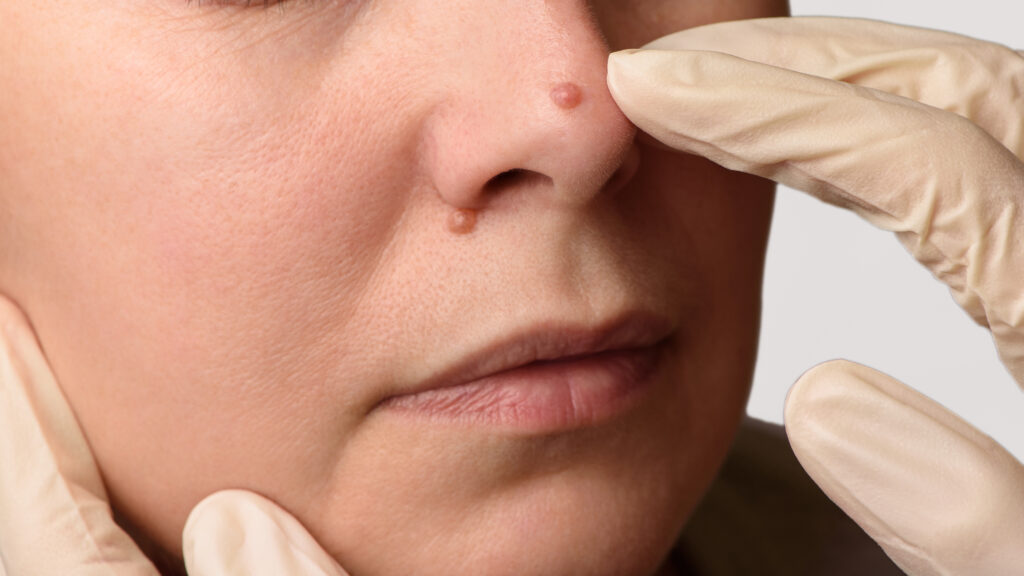Everything You Ever Wanted to Know About Warts

Warts aren’t something anyone wants to have. They’re associated with frogs and fairy tale witches, and they’re unsightly and embarrassing. Worse, they’re sometimes hard to get rid of or prevent! Here, Swinyer-Woseth takes a deep dive into warts, so you’ll know everything you need to when dealing with these troublesome growths.
- What are warts? Warts are small skin growths that can occur anywhere on the body. They can be raised or flat, and while most warts are harmless, some genital warts can cause cancer. Warts only affect about three to five percent of adults, but they’re much more common in younger people, affecting as many as one-third of in children and teenagers. A weakened immune system puts a person at a higher risk of contracting warts.
- What causes warts? Warts are caused by a virus known as the human papillomavirus, or HPV. Just like any other virus, HPV is contagious, so warts can spread to other people, transmitted through touch. There are more than 100 types of HPV, and it’s very common.
- What are the different types of warts? There are several different, distinctive types of warts.
- Common warts typically occur on the fingers, though they can occur anywhere. They have a firm, rough, raised surface and may have a cauliflower-like texture. Sometimes they’ll have clotted blood vessels in them that look like “seeds.”
- Plantar warts occur on the feet and palmar warts on the palms of the hands. They’re hard, flat, and rough, often gray or brown, and they have a small black center. They can be difficult to remove, and plantar warts can be painful. Mosaic warts are plantar warts that grow in a cluster.
- Plane warts typically grow in sun-exposed areas. They’re smooth, flat, and round, and yellowish, brownish, or the color of the person’s skin. They grow in groups, and it’s not uncommon to have 20 to 100 at once.
- Filiform warts are long and thin. They grow rapidly and occur on the face, neck, eyelids, and in the ears.
- Periungual warts grow around the nails. They’re thick growths with the texture of cauliflower, and they typically occur in people who bite their nails or often have wet hands. This type of wart can cause infections in the skin around the nails.
- Genital warts can be prevented with a vaccine. Occurring on the penis, anus, vulva, vagina, or cervix, these warts can be flat and smooth or bumpy and often itch. They’re spread through sexual contact and increase your risk of cancer.
- What are the treatments for warts? The only thing that makes a virus go away is the immune system, and 70 percent of warts will go away on their own within two years. Of course, people don’t want to wait two years for warts to go away, which is why there are many different treatments available that trigger an immune response to get rid of warts. Over the counter methods include salicylic acid plasters and solutions that can be very effective but may take a long time to work. There’s also an OTC freezing spray that works on small warts, but it’s painful and not as effective as the liquid nitrogen a dermatologist can use to freeze warts. Your doctor can also offer other treatments, including injections, cautery, and topical treatments. It’s ok to try over-the-counter wart removal, but if it’s not working as quickly as you’d like, it’s smart to call a dermatologist.
When you need help with warts or just generally caring for your skin, contact Swinyer-Woseth Dermatology to schedule a consultation. We’re committed to providing superior, professional skin care in a manner that’s practical, efficient, and compassionate. With over 30 years of experience supplying dermatological services in Salt Lake City, we offer a variety of services, from cosmetic skincare to treatment for skin cancer. Our team of board- certified dermatologists and licensed cosmetic service providers are here to provide you the care you need in a comfortable, professional atmosphere. Call (801) 682-4715 or contact us through our website.
